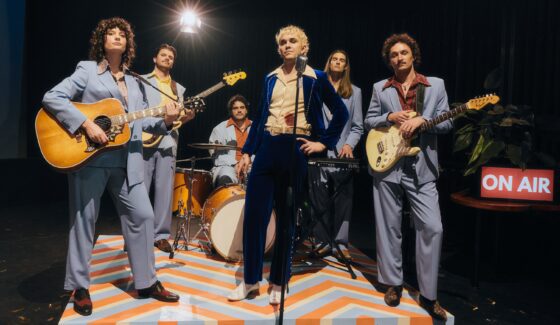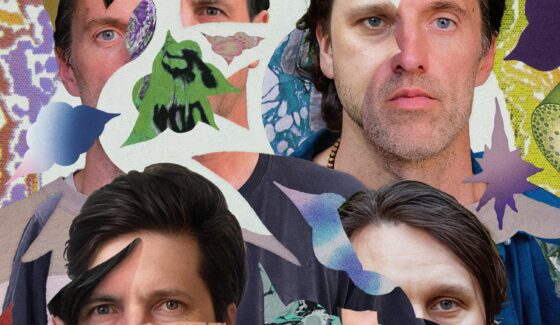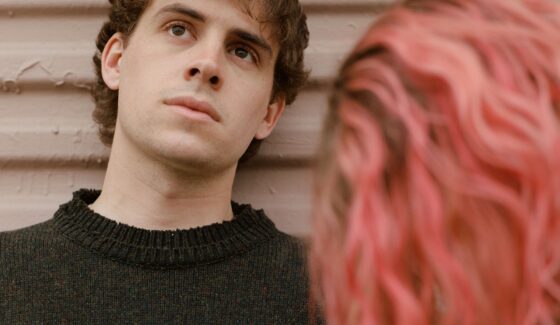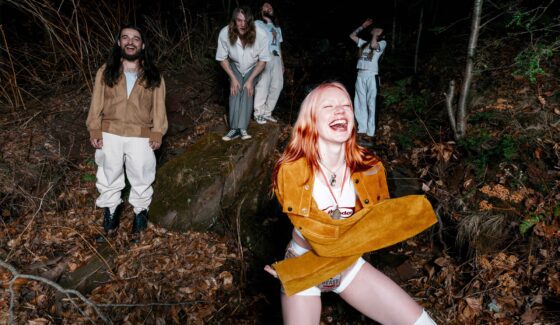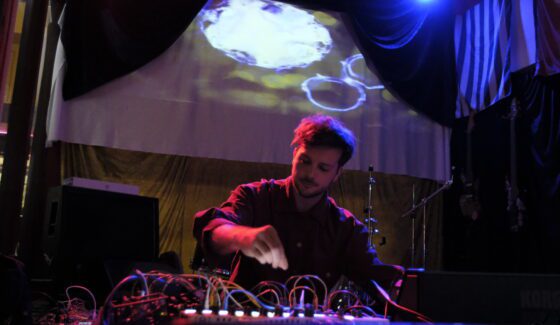Live Review: Buzzcocks 40th Anniversary Show @ The Triffid
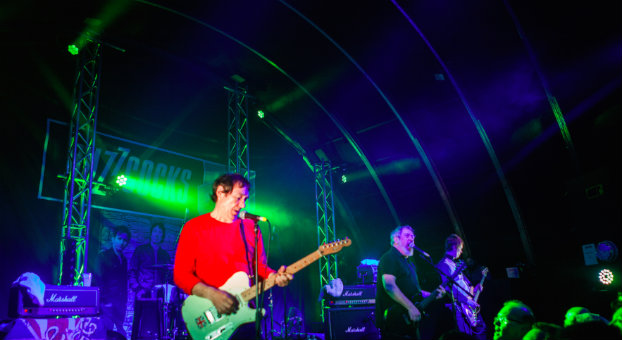
Punk is a genre made by youth for youth and so it seems a little incongruent, even laughable to watch its pioneers from the 1970s play the same songs 40 years later as middle-aged men. On the other-hand, age and maturity also have the benefit of enabling musicians to refine their sound and live show to a point where they are able to play and sound better than during their prime. Of course, the idea of meticulous musicianship goes against the ethos of punk itself, but then that’s not necessarily a bad thing. It’s more useful to think of bands like Buzzcocks as more than just a punk group who owe everything they were and everything that they have become to a silly, often contradictory label. It then becomes a lot easier to appreciate the extraordinary reunion shows they are playing across Australia to celebrate their 40th anniversary as a demonstration of their wide-reaching and longstanding song-writing abilities, with their punk hits from the 70s sounding as fresh and invigorating as they did during their heyday.
This is of course because the Buzzcocks formula is more than just hard punk. And truly, if we’re being honest with ourselves, is there such a thing as pure punk? Buzzcocks work because they bring together contrasting and clashing elements, combining memorable pop melodies with punk attitude, rough guitar playing and the distinctive high-pitch drawl of frontman Pete Shelley. All of these elements that made them so great during their prime remain true to the present day and perhaps even enhanced with time and age. The band’s cult hits feel just as catchy and memorable as they did 40 years ago, while band members also display greater control over their instruments and an enduring talent for songwriting with many of their new tunes seamlessly blending into the set.
Due to what appears to be some kind of technical error the band take an awfully long time to take the stage, with sound engineers fiddling with the amplifiers and the lighting for a good solid 20 minutes. While this is only a minor annoyance it does highlight how far Buzzcocks have come from their punk rock roots. Nevertheless, this initial conception is contradicted by their opening – a full throttle, no-stops blast of classics such as Boredom from the band’s debut EP, and I Don’t Mind and What Ever Happened To? from the singles compilation they released in 1979 that put them on the map in the United States.
Sandwiched between the hits are some more contemporary offerings that hold up just as well, with 1993’s Alive Tonight and 1996’s Totally From the Heart. The sound is as ear-splitting as one would expect from a Buzzcocks gig, but perhaps a little too loud and a little unevenly mixed. While the guitars were turned up to mammoth levels, the vocals were fairly distorted to the point where it was actually difficult to understand what the band were singing and saying. Even so, many would argue you don’t need to hear the words to enjoy a Buzzcocks performance and they would probably be right, as the experience itself proved to be riveting and nuanced ride through the band’s career.
The momentous, energetic opening sets the bar pretty damn high for the rest of the set, but Buzzcocks deliver with remarkable stamina considering both their mental and physical ages are well beyond their youth. It would have been easy and unfortunately more common for a band like Buzzcocks to simply go through the motions, but both Pete Shelley and Steve Diggle makes a concerted effort to push through song after song without losing any of their zest. Diggle in particular acts as the band’s frontman for most of the set, constantly fist-pumping at the audience, shredding on his guitar at every opportunity (of which there are many) and gleefully conversing with the audience in-between songs. Shelley takes a backseat, but at times reaches out to the audience to introduce a song or provide some commentary. However, Diggle is the undisputed superstar of the night; there’s not a moment Diggle’s face isn’t contorted with unabashed ecstasy at the thrill of simply playing music for a live audience.
While the selection of songs on the night are designed to feature the band’s greatest hits, they also highlight the many different sides to Buzzcocks and their song-writing capabilities. Although most songs are two to three minute explosions of scratching guitars with repetitive, athematic lyrics, the themes explored vary from the trials and tribulations of young love on tracks such as You Tear Me Up, the sexual frustrations of Why Can I Touch It? to the quasi-philosophising on Nostalgia. The solemnly delivered Sick City Sometimes demonstrates the band have not lost their touch as contemporary songwriters as an ode to the tragedy of 9/11 from 2003’s “Buzzcocks”, which still resonates in a social and political climate inundated by terror threats. Then there’s the wonderfully quirky People Are Strange Machines from 2014’s “The Way”.
In true punk form, Buzzcocks finish their set with a show-stopping finale that inspires various crowd members to barge onto the stage and attempt to crowd-surf in a partially full venue, which inevitably leads to disaster for said punters. They close with cult classics What Do I Get? and Orgasm Addict, both of which wonderfully demonstrate what made Buzzzocks so great. While many punk acts seem more like manufactured chaos in retrospect, there’s a raw vulnerability and untainted nihilism explored on Buzzcocks’ tunes that elude pretension, which is why they still resonate to this day. It still seems innovative, 40 years later to hear a punk icon like Pete Shelley sing the simple, but evocative line from What Do I Get?: “I’m in Distress/I need a caress.”
This is also evident with the band’s encore, which features the two songs that landed them spots in the top 40; Ever Fallen in Love and Harmony in the Head. Interestingly, both songs come from different sources, with Ever Fallen in Love highlighting the gawkish earnestness of Pete Shelley as a song with its enduring bisexual context about falling in love with the wrong person, while Harmony in the Head is one of Steve Diggle’s brash social critiques. Shelley is positively beaming by the end, while Diggle displays his bliss in a more outlandish manner as he violently pounces upon his guitar for the closing guitar riff. Both demonstrate in their on way that although they may have grown older, the sentiments of their songs still ring true and reverberate through their character as equally impeccable artists and showmen.
Check out our Photo Gallery HERE
